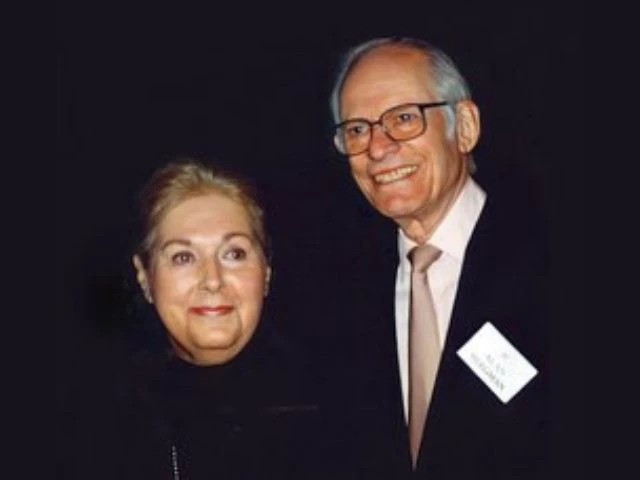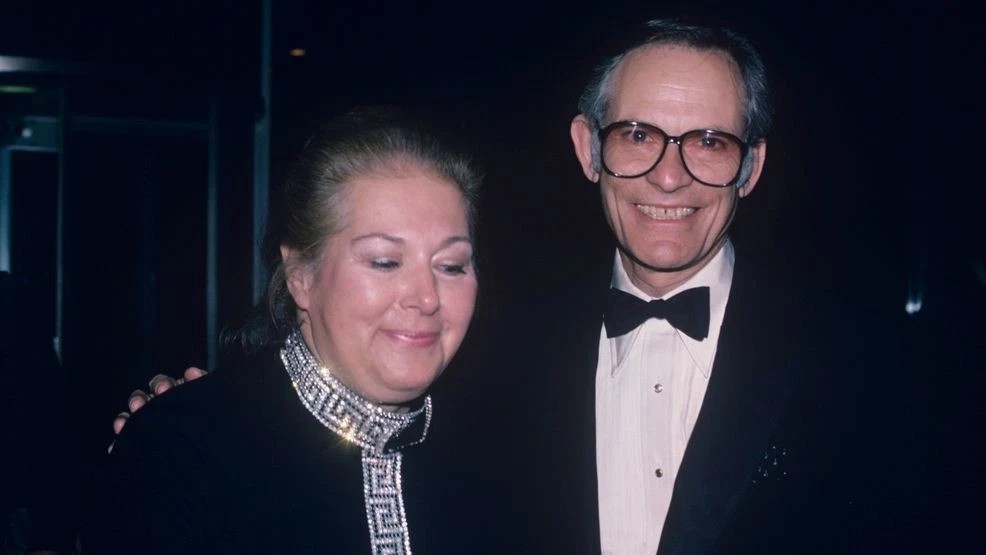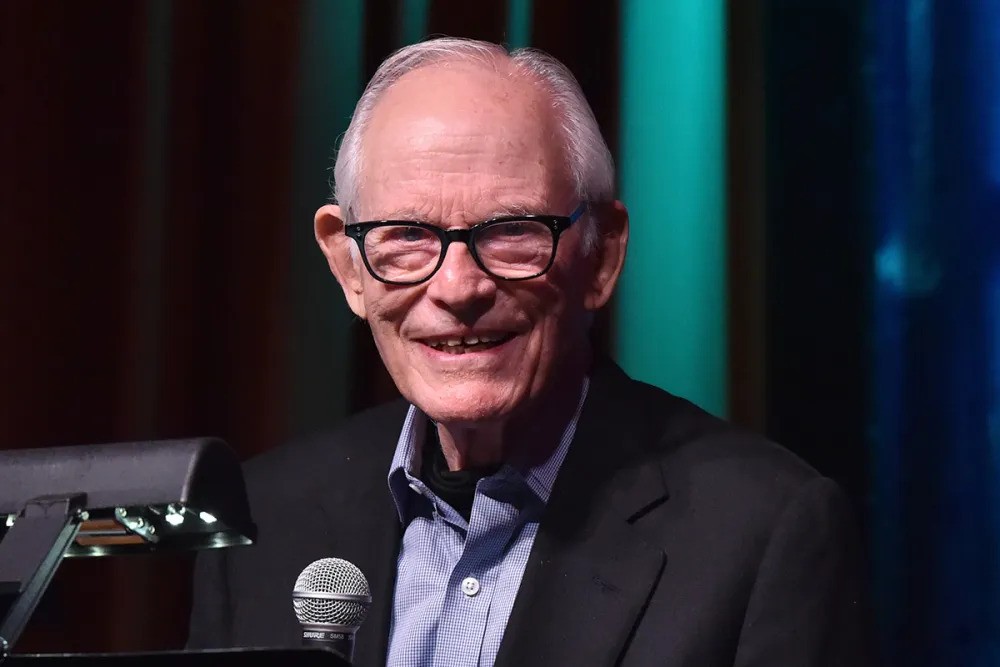On July 17, 2025, the curtain fell on one of American songwriting’s most luminous careers as Alan Bergman passed away at the age of 99. News of his death came via family spokesperson Ken Sunshine to Reuters, ending the story of a man whose name was synonymous with lyric excellence.<br>
Alan’s passing also marked the closing chapter of a half-century-long creative partnership, one that began the moment he first met his wife—and future collaborator—Marilyn Bergman.
A Fateful Encounter
It was 1956 in Los Angeles when chance intervened. Through mutual composer friend Lew Spence, Alan and Marilyn were introduced. That same evening, they sat down and—almost spontaneously—penned their first song together. Alan would later joke, “It was a terrible song, but we loved the process.” That half-joke would come to define their working relationship. From that moment forward, their lives and creative destinies were intertwined.
The couple fell in love and married in 1958, officially cementing a bond that would last more than six decades. At the heart of their partnership was a tennis-like creative exchange: one would pitch an idea, the other would catch it, refine it, and send it back.
Forging a Musical Dynasty
In the years that followed, Alan and Marilyn carved names for themselves in the annals of songwriting. They collaborated with some of the world’s most gifted composers—Michel Legrand, Marvin Hamlisch, John Williams, Quincy Jones—and their lyrics were brought to life by musical icons: Frank Sinatra, Barbra Streisand, Dean Martin, Johnny Mathis, Sting, and many more.
Their hearts and souls found expression in scores of unforgettable works: the sweeping melancholy of “The Windmills of Your Mind,” the tender nostalgia of “The Way We Were,” lyrical storytelling in Yentl, and chart-topping pop hits like “Yellow Bird.” On television, their catchy, instantly recognizable themes for shows such as Maude, Alice, and Good Times ensured their music became woven into the fabric of everyday life in the 1970s.
A musical dynasty? Maybe. But it was deeply, profoundly personal: a husband and wife, growing together in love and art.
Accolades That Understated Their Artistry
By any measure, Alan and Marilyn’s achievements would be remarkable. But it was in those accolades—the tangible proof of peer and public recognition—that their greatness shone:
- 3 Academy Awards –
“The Windmills of Your Mind” (with Michel Legrand) for The Thomas Crown Affair (1968),
“The Way We Were” (with Marvin Hamlisch) for the 1973 film of the same name,
and another for Yentl (with Legrand). - 4 Emmy Awards –
Recognition for their extraordinary contribution to television songwriting. - 2 Grammy Awards,
notably Song of the Year in 1975 for “The Way We Were.” - Induction into the Songwriters Hall of Fame in 1980—a formal enshrinement of their status in music history.
Yet to the Bergmans, awards were secondary. Their main focus was crafting lyrics that, in their words, were “at the tips of the notes.” They viewed themselves as linguistic partners to composers—translating melody into meaning.
Mentorship and Musical Apprenticeship
A native of Brooklyn, born in September 1925, Alan Bergman honed his craft early. At 13, he wrote his first song. He later pursued formal musical training, earning a master’s degree from UCLA, where he crossed paths with Johnny Mercer (legendary lyricist of “Moon River”).
Mercer became his mentor, shaping Alan’s trajectory. Although Alan initially worked as a television producer in Philadelphia, Mercer urged him toward songwriting. As Alan later said, “I would not be here today without him. He was a great influence.”<br>
That mentorship, and the confidence it imbued, would fuel decades of creativity.

The Sinatra Connection
Their break into the music-business stratosphere can be traced to Frank Sinatra’s 1960 album Nice ’n’ Easy. It included their song “Yellow Bird,” earning them both money and recognition. Sinatra, impressed with the Bergmans’ talent, took them under his wing—nicknaming them “the kids.” Their relationship evolved into mutual admiration, with Sinatra recognizing their rare gift for blending melody and emotion.
A Television Staple
While film composers came knocking, Alan and Marilyn also pivoted seamlessly to television. They wrote unforgettable theme songs for shows like Maude and Good Times; lyrical vignettes that opened episodes before millions of viewers. Their ability to encapsulate a show’s tone in under thirty seconds was a rarified skill—showing yet another facet of their creative agility.
A Bond Beyond Life
Marilyn Bergman passed away in January 2022. Since then, Alan continued writing, fueled by memory, love, and devotion. His lyrics stayed lush, poetic, and heart-wrenchingly honest.
One deeply personal song from his later years was “Wherever I May Go (for Marilyn),” written as a tribute to his partner of over sixty years.
In November 2024, he spoke to JazzTimes about their process:
“I was writing both music and lyrics in those days, and [Mercer] would listen to what I was writing and critique it and encourage me.”
“We believe that words are at the tips of those notes and it’s our job to find them.”
In 2011, talking to NPR, he described his and Marilyn’s lyric-writing as “an adventure”—a back-and-forth hunt for phrasing that would both match the melody and resonate emotionally.
A Final Rekindling Through Streisand
On July 18, 2025, Barbra Streisand—long a friend, interpreter of their best songs, and “like family”—paid tribute on Instagram. She echoed the sentiment felt by many who knew the Bergmans:
“We met over 60 years ago, and we never stopped loving each other and collaborating together. My last conversation with him was about a wonderful song he was working on. At 99 his creative gifts still flowed.”
She pictured the pair reunited: “I like to think he’s again in Marilyn’s warm embrace and I’m sure they have started collaborating again on another song!”
Their Legacy in Song
What Alan and Marilyn created wasn’t just music—it was a language of love, memory, resilience, and the human condition. Their songs have soundtracked weddings, funerals, graduations, quiet drives, heartbreaks, and triumphs. Their music lives on in streaming playlists, vinyl reissues, movie retrospectives, and the collective memory of decades of listeners.
Through lyrics, they asked us to feel deeply: the spinning whir of memory in “Windmills”, the bittersweet longing of “The Way We Were”, gentle moral questioning woven into TV theme lines. They made emotional landscapes accessible, yet artful; personal, yet universal.

The Measure Beyond Awards
From the outside, awards catalog their achievements: Oscars, Grammys, Emmys, Hall of Fame induction. But real measure lies elsewhere:
- In a listener’s nostalgic gaze upon memories that haunt like gentle ghosts—“can it be that it was all so simple then?”
- In a lyric that, like a photograph, pauses us in time, stirring recognition.
- In the lyrical images that merge music with emotional resonance—the spinning windmills, the wistful candlelight, the faces unchanged, the chance meeting.
Vinyl, film, TV, concert stages, wedding playlists—their words will continue to speak, comforting or confronting, evoking worlds of heartache and hope.
Reflections on Collaboration
Alan always said their working model was like a baseball game—pitching ideas, catching one another’s thoughts, refining, re-throwing. It was a form of marriage: creative, respectful, attuned.
He explained this synergy best: “We prefer to have the music before we begin to write the lyrics. Composers leave their compositions with us, and we find the words that fit the notes.”<br>
“It’s an adventure,” he told NPR. And for 60 years, it was—in both life and art.
A Lasting Testament
Their most famous songs still ring fresh: “Windmills” spins philosophical webs. “The Way We Were” makes us ache with memory’s bittersweet touch. Yentl’s soundtrack weaves identity and belonging. “In the Heat of the Night” marries social relevance with emotional resonance.
Their TV themes? Even casual viewers can hum Good Times or Maude intros—and know instantly that the words encapsulate drama, humor, aspiration.
The Unwritten Encore
Alan’s last years were marked by reverence for Marilyn and a relentless creative itch. Even at 99, he was plotting songs, shaping lyrics, and conversing with Streisand about new material.
Now, as he has joined Marilyn—perhaps lyric-writing once more in a different realm—what remains is their extraordinary body of work. Whether in a Glee performance, a movie montage, a PBS retrospective, or a quiet piano version in someone’s living room, their lyrics will continue to find new hearts and ears.
Final Thoughts
When they crashed into each other’s lives in 1956, they could not have known that a spontaneous tune would set them on a path both marital and musical that would inspire generations. Their music became a mirror for the collective consciousness—mirroring love, loss, memory, aspiration.
Alan Bergman’s passing closes a long chapter—yet the lyrics they composed together remain alive, vibrant, intimate, universal. Their work reminds us that art made in love—through dialogue, trust, and mutual respect—lasts longer than any one life.
Enduring Sentiments
- On Love: Their opening lyrics ask us to feel that “things we’ve never had are worth fighting for,” and they believed it.
- On Memory: “I remember the way we were,” they wrote, accusing time of altering nothing except perception.
- On Collaboration: Lyric and composer, melody and word—they believed each existed to serve the other.
Through song, Alan and Marilyn Bergman mined interior worlds—and invited us in. Now, with Alan gone, we feel the quiet echo. But echo is memory reborn.










